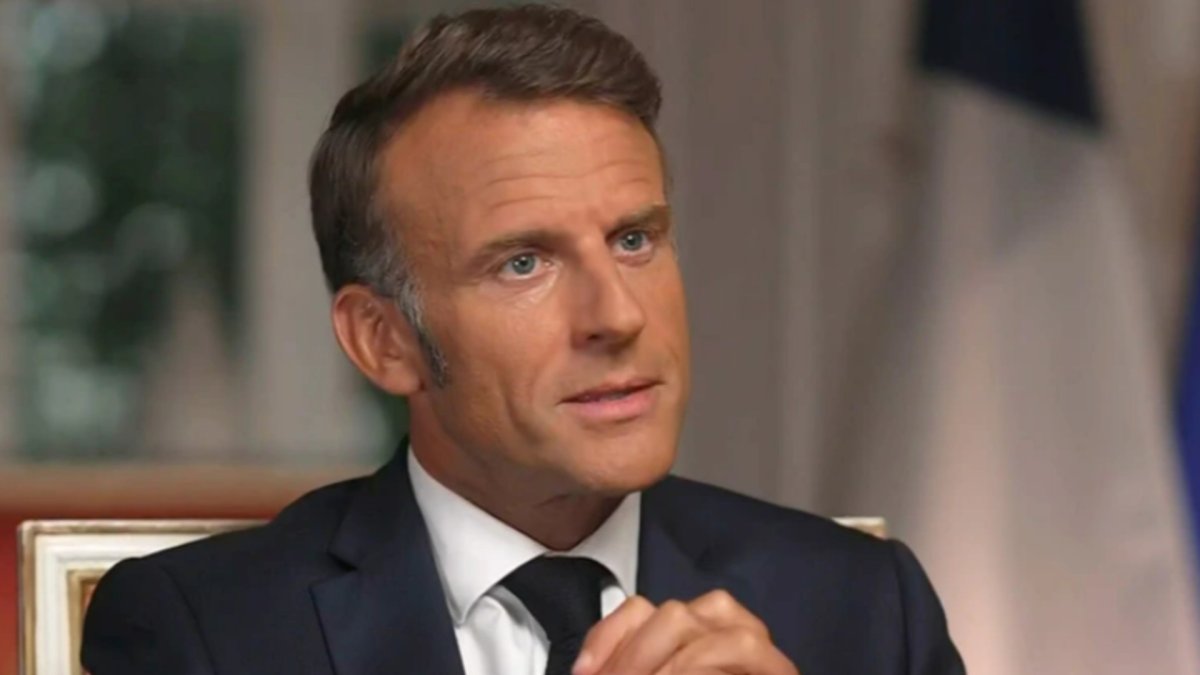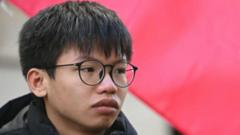Is Macron Doubting Putin's Commitment to Peace in Ukraine?

Exploring the Call for Peace in the Russia-Ukraine Conflict
The ongoing conflict between Russia and Ukraine has drawn global attention, raising critical questions about the future of peace in the region. French President Emmanuel Macron has recently expressed skepticism regarding Russian President Vladimir Putin's willingness to engage in meaningful dialogue to resolve the conflict. This article delves into Macron's insights, the geopolitical implications, and the essential need for security guarantees to protect Ukraine's sovereignty moving forward.
Macron's Skepticism on Peace Negotiations
In a recent interview with NBC News, Macron articulated his doubts about Putin's readiness to pursue peace. Despite acknowledging the optimism of President Donald Trump regarding potential negotiations, he emphasized the importance of applying pressure on Russia to facilitate a resolution. Macron stated, "When I look at the situation and the facts, I don’t see President Putin very willing to get peace now," highlighting the complex dynamics at play.
His call for increased sanctions against Russia underscores the necessity of a firm stance to compel compliance from the Kremlin. Macron pointed out that if diplomatic efforts fail, additional sanctions—both primary and secondary—should be considered. This strategy reflects a broader understanding of the aggressor-victim dynamic, where Russia, as the aggressor, must be held accountable for its actions.
The Role of Security Guarantees
One of the pivotal points raised by Macron is the need for security guarantees for Ukraine. He asserts that any peace deal without these guarantees is futile, as Russia has historically failed to honor its commitments. "If you make any peace deal without security guarantees, Russia will never respect its words," he cautioned. This sentiment highlights the necessity of a robust framework that protects Ukraine against future aggression.
The Importance of International Support
Macron is not alone in his position; the support of European leaders and the broader international community is crucial for Ukraine's strength. During discussions with leaders such as European Commission President Ursula von der Leyen and NATO Secretary-General Mark Rutte, the consensus was clear: a united front is vital in addressing the Russian threat. The collective effort emphasizes that the security of Europe extends beyond Ukraine's borders, affecting global credibility and stability.
Challenges to Peace Talks
The path to peace remains fraught with challenges, particularly given the ongoing military actions by Russia. Despite diplomatic discussions, Putin's continued strikes in regions like Kharkiv and Zaporizhzhia raise serious concerns about the feasibility of a ceasefire. Macron poignantly remarked, "It’s impossible for a Ukrainian president and Ukrainian officials to have talks about peace as their country is being destroyed." This statement encapsulates the harsh reality faced by Ukraine as it grapples with the consequences of war.
Land Swaps and Territorial Integrity
Another contentious issue discussed by Macron was the notion of land swaps proposed during negotiations. He firmly opposed this idea, asserting that territorial discussions should originate from the Ukrainian leadership and people. "Now, when we speak about territory, it’s for the Ukrainian president and for the Ukrainian people to discuss about it," he stated. This stance reinforces the principle of national sovereignty and the rights of citizens to determine their fate.
The Broader Geopolitical Implications
The conflict in Ukraine transcends national boundaries, posing a threat to the security of Europe as a whole. Macron emphasized that the actions taken in Ukraine serve as a litmus test for global credibility. "The way we will behave in Ukraine will be a test for our collective credibility in the rest of the world," he remarked. This perspective underscores the interconnectedness of international relations and the potential consequences of inaction or appeasement.
Containment of Nuclear Threats
Macron's concerns also extend to the implications of a nuclear power, such as Russia, disregarding international borders. This situation necessitates a coordinated response from the international community to contain such threats and uphold the principles of international law. The stakes are high, and the need for decisive action has never been more apparent.
Conclusion: The Path Forward
The call for peace between Russia and Ukraine is not merely a diplomatic exercise; it is a vital necessity for regional stability and global security. Macron's insights into the complexities of the situation highlight the importance of a unified approach to address the challenges posed by Russia. The emphasis on security guarantees, international cooperation, and the rejection of land swaps lays the groundwork for a more sustainable peace process.
As we look to the future, the question remains: how can the international community effectively support Ukraine while holding Russia accountable for its actions? The journey toward peace is fraught with obstacles, but the commitment to a secure and stable Europe must guide our efforts.
FAQs
What are the main obstacles to achieving peace in Ukraine?
The primary obstacles include ongoing military aggression from Russia, skepticism about Putin's willingness to negotiate, and the complexities surrounding territorial integrity and sovereignty.
Why are security guarantees essential for Ukraine?
Security guarantees are crucial to ensure that any peace deal is respected by Russia, given its history of failing to uphold agreements. These guarantees would provide Ukraine with the necessary protection against future aggression.
How does the conflict in Ukraine affect global security?
The conflict poses a significant threat to European stability and international credibility. The actions taken in Ukraine are seen as a test of the global community's commitment to upholding international law and deterring aggression.
In a time of uncertainty, it is imperative for the world to rally together to support Ukraine and hold aggressors accountable. How can we ensure that the lessons learned from this conflict lead to a more peaceful global landscape? #PeaceInUkraine #GlobalSecurity #InternationalRelations
Published: 2025-08-19 03:46:18 | Category: Trump GNEWS Search



